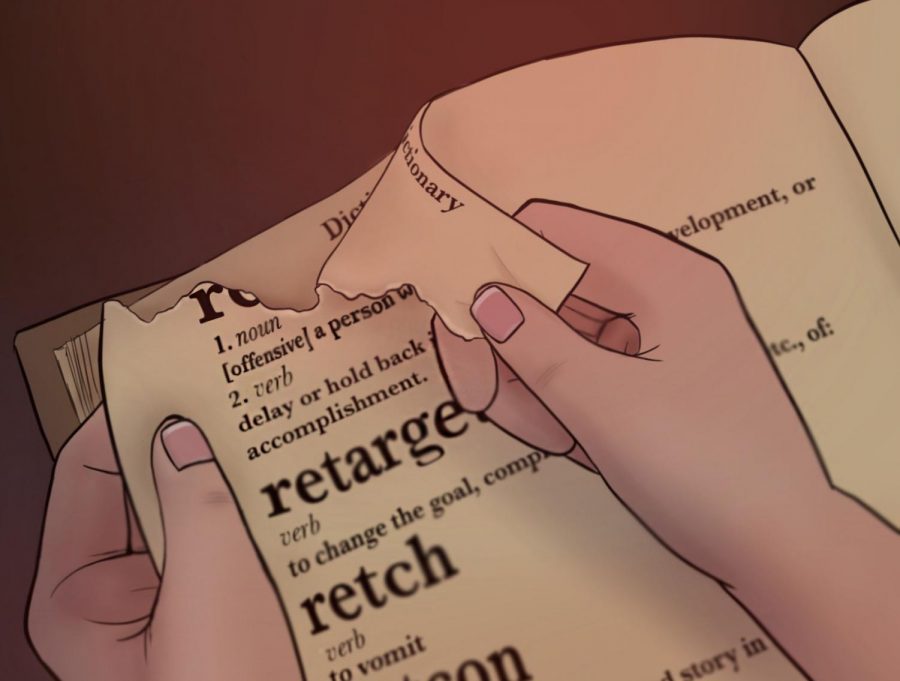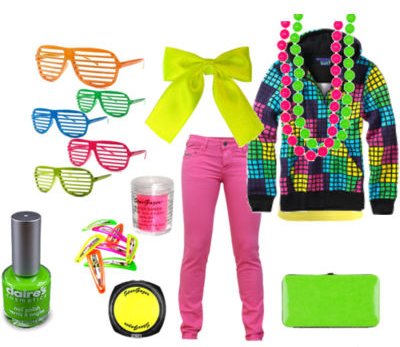Opinion: Why you should not use the r-word
Sophomore Sophia Jazaeri shares her thoughts on the r-word.
It was an hour into playing Among Us with friends when I opened the group chat to see a message from a student at another school.
“HEY RE****S, WHERE THE HELL ARE YOU?! GET ON, RE****S.”
I shouldn’t have been surprised. Throughout quarantine, I had limited my inner social circle to people who speak like me, so it had been a while since I’d heard such insensitive language.
I suggested that his choice of vocabulary was offensive and inappropriate.
“It’s not like I said the n-word, calm down,” he replied defensively.
Unfortunately, this is just one of many incidents in which the r-word has reared its ugly head.
The n-word and the r-word are both very different—yet neither are okay. Both carry a deeply disturbing and violent history, and the fact that this pest seemed to take pride in not actually saying the n-word did not help his case.
Do I really need to explain why? Clearly I do because some of you have never spoken to someone who is any different from you or your friends, much less suffer from severe mental disabilities, and you are deeply insensitive towards those that do.
It’s not “edgy” or “dark humor.” It’s a harmful slur.
The r-word’s history is one of violent beatings, electro-shock therapy and abuse in the medical community up until the Americans With Disabilities Act was passed in 1990. Disabled people have endured trephination (the act of breaking small holes into the skull and removing pieces of the brain) as well as bloodlettings, solitary confinement, forced coma therapy, induced seizures and lobotomies.
These horrifying practices went on for decades and were almost always done without patient consent. In many cases, it crossed the line from a horrifying medical practice into torture. Using the r-word disregards the abuse that disabled people have endured.
Even if a disabled person can find work, a loophole allows employers to pay disabled employees less than $1 an hour. Our unwillingness to acknowledge the basic human rights of disable people leaves them few options beyond living with caregivers or otherwise forfeiting their independence.
The r-word should never be associated with stupidity. Just because you might be unfamiliar with the baggage this word carries does not give you the right to use it in any context.
The r-word needs to be removed from our vernacular entirely. The next step: be better. While complicated, it is certainly not impossible. Punishment isn’t the necessary course of action—a change in behavior is. This isn’t about canceling one other—it’s about building positive behavior.
As with other slurs, we need to call people out and speak up when they decide to utter the word with aggressive ignorance. Don’t be afraid to let your classmates, teammates or complete strangers know that it’s not right—many people don’t even realize it’s a slur.
We have tackled sensitive subjects such as race, gender and sexuality many times before, but in a number of ways, we have dropped the ball on ableism. Don’t say the r-word on campus, don’t say it on the sports field, and don’t put it in all caps of a video game group chat like a 12-year-old mansplaining misogynist.
We are better than this.
Fullest stop.

Sophia Jazaeri ('23) joined The Review in 2019 as a freshman. Her favorite show to theorize about is the satirical nature of "Riverdale," and she unironically...

Alice Xu ('23) joined The Review in 2019 as a freshman. Her favorite boba order is strawberry black tea with tapioca and less ice, and she likes...















Sydna julian • Nov 11, 2020 at 5:31 AM
Sophia, Wow, as John Lewis said “ silence is complicity”. You give me courage, yes that r word as your great grandad Westerman would have said shows ignorance and lack of real vocabulary. I’m proud of you and will distribute your writing here in Charlottesville. I live you, Grammie
Caroline • Nov 10, 2020 at 7:43 PM
Bravo, Sophia! An excellent article. The only sad part is that such an article is necessary at all!